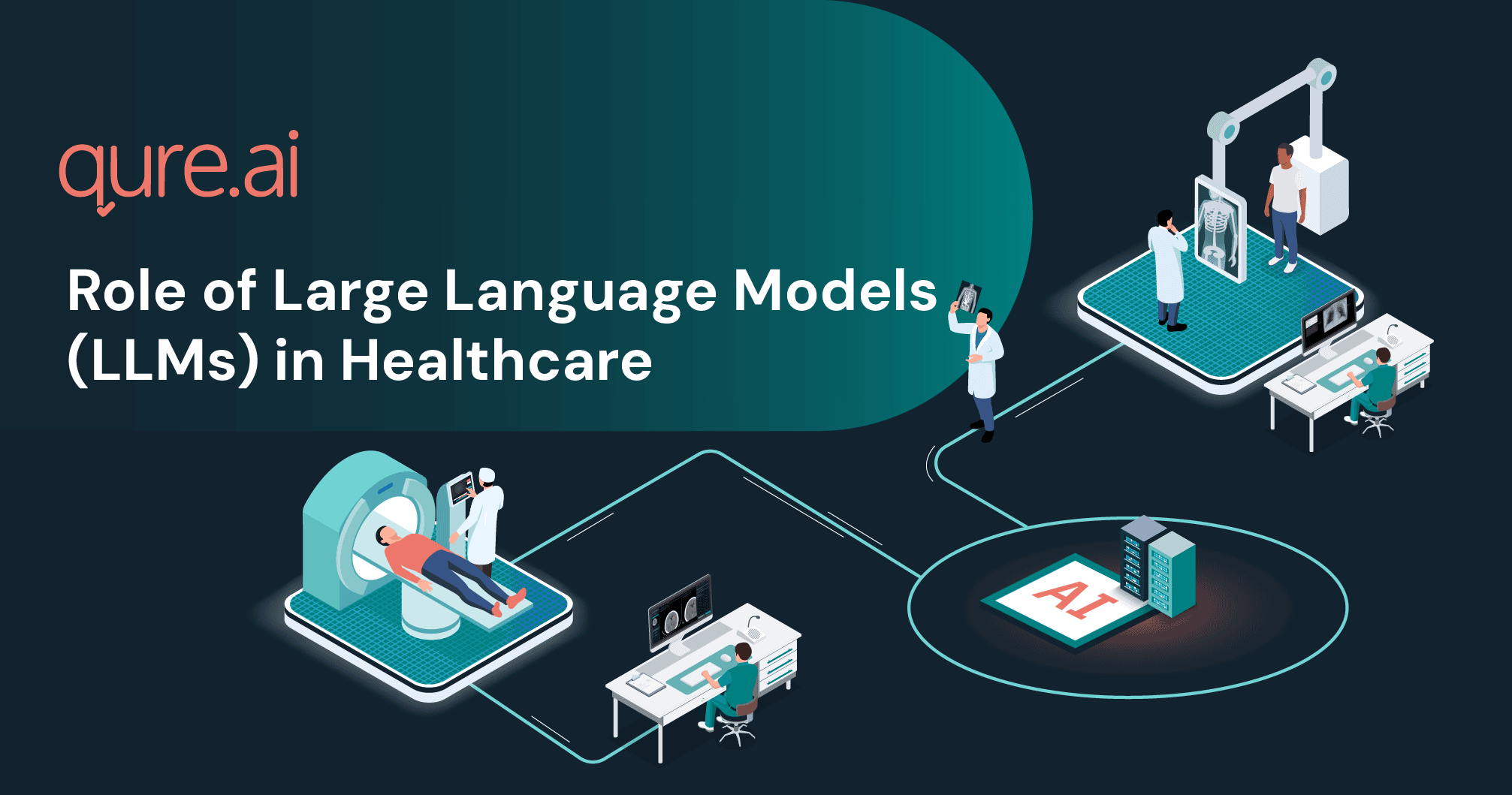Large Language Models (LLMs) are becoming more common in healthcare. This is changing medical informatics, diagnosis, and patient care significantly. These models, trained on extensive datasets, offer unprecedented capabilities in understanding and processing complex medical information.

Back
Adjusting these models for specific diseases, like lung cancer, shows a tailored approach to healthcare analytics. This ensures high accuracy and relevance in their results. LLMs can greatly improve the work life of healthcare workers. This, in turn, can raise the quality of care for patients.
Foundational Models and Fine-Tuning in Healthcare
Foundational models serve as the bedrock for specialized LLMs in healthcare. These models are trained on a vast corpus of data, encompassing a broad spectrum of knowledge. This comprehensive training, as suggested by research from Cornell University, equips them with a general understanding of language and concepts, making them versatile in various applications. However, the versatility of foundational models is a double-edged sword. While they possess extensive knowledge, the breadth of their training can sometimes lead to diluted expertise in specific domains, such as medical specializations. This is where the concept of fine-tuning becomes paramount.
Expanding Roles of LLMs in Medical Fields
The role of LLMs in healthcare is multifaceted and continually evolving. LLMs can assist healthcare professionals in diagnosis by providing rapid, data-driven insights. They can analyze patient data, compare it with vast medical records, and suggest possible diagnoses or flag potential issues requiring further investigation. This capability is precious in areas with limited access to specialist medical knowledge or where healthcare systems are overwhelmed.
These models can recommend tailored treatment plans by analyzing a patient's medical history, genetic information, and current health status. This approach could lead to more effective treatments with fewer side effects, as the recommendations are based on a comprehensive analysis of relevant data. LLMs also hold significant promise in medical research, particularly in understanding complex diseases and developing new treatments. By processing and analyzing vast amounts of research data, these models could identify patterns, propose hypotheses, and could even in the future predict the efficacy of new drugs. This could accelerate the pace of medical research, potentially leading to quicker discoveries and innovations in healthcare.
Another critical area where LLMs can contribute is in public health. Models trained on epidemiological data could aid in predicting disease outbreaks, understanding transmission patterns, and formulating public health strategies. This is particularly relevant during global health crises, such as the COVID-19 pandemic, where timely and data-driven responses are crucial.
LLMs: Bridging Gaps and Setting New Standards in Healthcare
According to the journal Nature, LLMs have demonstrated considerable potential in enhancing patient care through their ability to augment core medical competencies. Notably, these models possess substantial semantic medical knowledge, enabling them to engage in medical reasoning. This capability is exemplified by their performance in medical licensing exams, indicating a proficiency that can be further enhanced through fine-tuning with specific medical data.
Furthermore, one of the transformative applications of LLMs in healthcare is improving communication between healthcare staff and patients. By simplifying complex medical jargon and facilitating translations, LLMs can bridge language barriers and make medical knowledge more accessible. This is particularly significant for conditions associated with social stigma, where digital tools like chatbots can offer discreet and informative assistance. The ongoing advancement of LLMs promises to overcome current technical constraints and limited acceptance by healthcare practitioners.
Another critical role of LLMs is in easing the documentation burden on clinicians. By converting unstructured notes into structured formats, LLMs can streamline administrative tasks, allowing healthcare providers to devote more time to patient care. This functionality can extend to clinical trials, where accurate and efficient documentation is crucial. In medical research, LLMs can democratize access to scientific evidence while presenting risks of misinformation and facilitating scientific misconduct. Their ability to summarize and critically appraise up-to-date, high-quality, peer-reviewed evidence can significantly aid researchers. However, the quality of these summaries depends on the training data.
The integration of LLMs in medical education heralds a shift in teaching methodologies. While they can serve as valuable tools in providing customized educational content and facilitating interactive learning experiences, there is a risk of undermining critical thinking skills. Integrating LLMs into healthcare is an exciting development, heralding a new era of innovation and efficiency in medical practice. These models offer remarkable potential to enhance medical knowledge, facilitate communication, and optimize administrative processes. Their application spans various aspects of healthcare, promising significant improvements in patient care, research, and education.
This technological advancement represents a substantial leap forward in making healthcare more accessible and practical. With their sophisticated data processing and analysis capabilities, LLMs are poised to play a crucial role in the future of medicine. As we continue to explore and harness the capabilities of LLMs, the prospects for their contribution to healthcare are boundless. This innovative time holds great promise for improving the quality of patient care and advancing medical knowledge, setting a new standard for healthcare in the digital age.